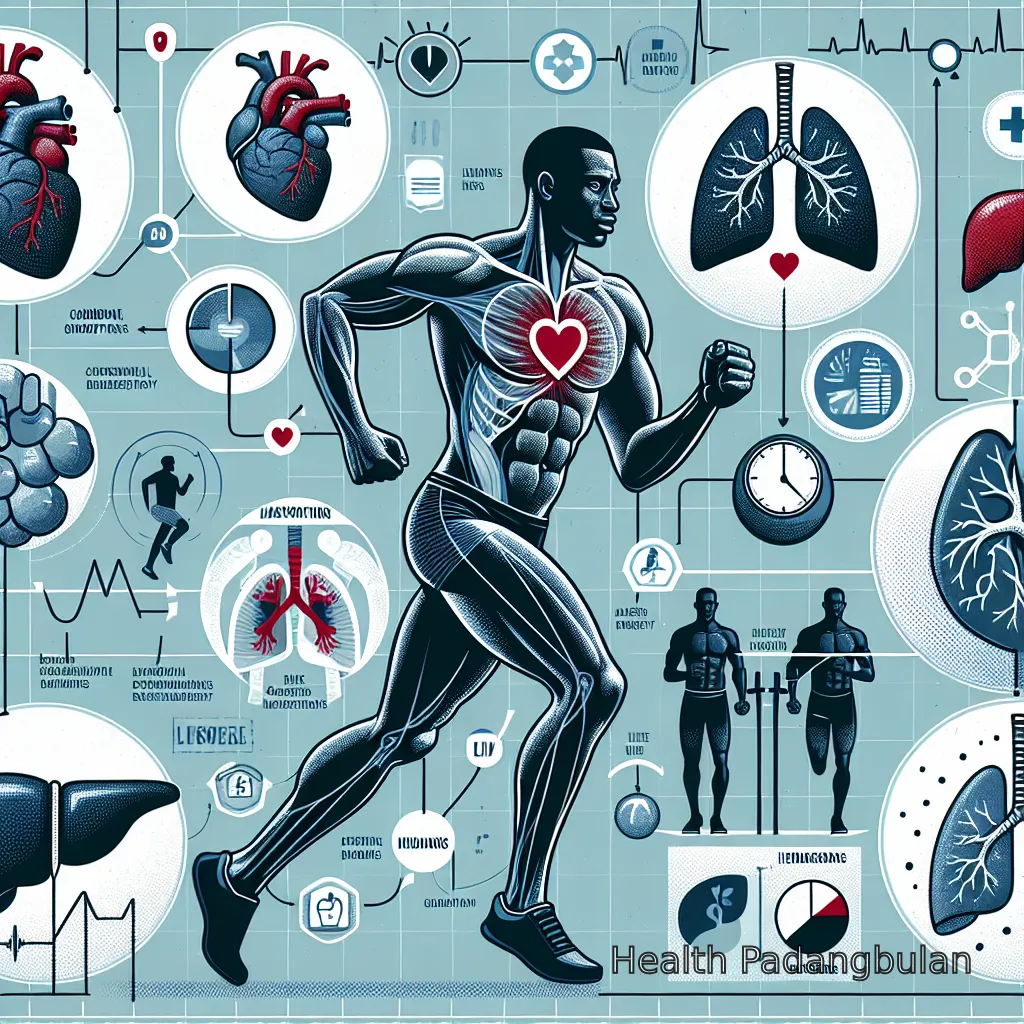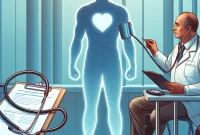Let’s face it, guys. We often have a knack for putting things off, especially when it comes to our health. We might power through a nagging ache, brush off persistent fatigue, or simply tell ourselves, ‘It’s probably nothing.’ But here’s the truth: understanding common men’s health conditions isn’t about dwelling on what *could* go wrong, it’s about empowering ourselves to live longer, healthier, and more fulfilling lives. Think of this as your friendly guide, not a doom-and-gloom report, but a proactive conversation about the health challenges men often face. From the big hitters like heart disease to the often-overlooked like sleep apnea, we’ll break down what you need to know, why it matters, and how you can take charge. So, grab a coffee (or a healthy smoothie!), and let’s dive into the world of men’s wellness together. It’s time to swap ‘I’ll get to it’ for ‘I’m on it!’
The Silent Stalker: Heart Disease and Your Health

When we talk about common men’s health conditions, heart disease often tops the list. It’s not just an ‘old man’s problem’ anymore; it’s a significant concern for men of all ages, unfortunately. Imagine your heart as the engine of a finely-tuned sports car – if you don’t maintain it, use the right fuel, and check its performance regularly, you’re setting yourself up for a breakdown. For men, risk factors like high blood pressure, high cholesterol, obesity, smoking, and a sedentary lifestyle can silently chip away at that engine. The scary part? Often, the first symptom is a heart attack. That’s why prevention is absolutely key. So, what does heart disease prevention for men look like? It’s not rocket science, but it does require consistency. Regular exercise (aim for at least 150 minutes of moderate activity per week), a balanced diet rich in fruits, vegetables, and lean proteins, maintaining a healthy weight, and stress management are your best defenses. Think of it as an investment in your future. Even small changes can make a huge difference. For example, swapping out sugary drinks for water or taking a brisk walk during your lunch break can contribute to a healthier heart over time. Don’t wait for a warning sign; start building heart-healthy habits today. Your future self will thank you.
Prostate Health: Small Gland, Big Impact
Deep within a man’s pelvis lies a small, walnut-sized gland called the prostate. Despite its size, it plays a crucial role in the male reproductive system. However, as men age, this little gland can become the source of a few common men’s health conditions. Two of the most prevalent issues are Benign Prostatic Hyperplasia (BPH) – a non-cancerous enlargement of the prostate – and prostate cancer. BPH symptoms often include frequent urination, a weak urine stream, or difficulty starting urination. While BPH isn’t cancer, it can significantly impact quality of life. Prostate cancer, on the other hand, is a more serious concern, and it’s one of the most common cancers among men. The good news is that when caught early, it’s highly treatable. This is where prostate cancer screening comes into play. Regular check-ups, which might include a PSA (Prostate-Specific Antigen) blood test and a digital rectal exam (DRE), are vital, especially for men over 50, or earlier if you have a family history of the disease. It’s a quick, sometimes uncomfortable, but potentially life-saving discussion you need to have with your doctor. Don’t let embarrassment or fear stop you from getting screened; early detection is a game-changer.
Read also : prostate cancer screening
Low Testosterone (Low T): Understanding the ‘Man-Pause’
Ever heard of ‘man-pause’? While it’s not a direct equivalent to menopause in women, low testosterone, or ‘Low T,’ is a real condition that can affect men as they age, typically starting around their 30s or 40s. Testosterone is more than just a sex hormone; it’s a powerhouse that influences bone density, muscle mass, red blood cell production, mood, energy levels, and even cognitive function. So, when levels dip, it can lead to a host of noticeable changes, making it another one of the common men’s health conditions that often goes undiagnosed. Symptoms of Low T can be subtle and easily dismissed as ‘just getting older.’ They might include persistent fatigue, reduced libido, erectile dysfunction, loss of muscle mass, increased body fat, mood changes (irritability, depression), and even difficulty concentrating. If these sound familiar, it’s worth a conversation with your doctor. They can perform a simple blood test to check your testosterone levels. Depending on the cause and severity, low testosterone symptoms treatment options range from lifestyle adjustments (better diet, exercise, sleep) to testosterone replacement therapy. It’s about finding the right balance to help you feel like yourself again, full of vitality and energy. Don’t suffer in silence; there are solutions available.
Diabetes: More Than Just Sugar

Diabetes is another widespread health issue that men need to pay close attention to. It’s a chronic condition where your body either doesn’t produce enough insulin or can’t effectively use the insulin it does produce, leading to high blood sugar levels. Left unchecked, high blood sugar can damage nerves, kidneys, eyes, and significantly increase the risk of heart disease and stroke. While Type 1 diabetes is often diagnosed in childhood, Type 2 diabetes – which accounts for about 90-95% of all diagnosed cases – is more common in adults and is strongly linked to lifestyle factors such as obesity, physical inactivity, and unhealthy diets. What makes it one of the common men’s health conditions is how often it goes undiagnosed in its early stages because symptoms can be mild. These include increased thirst, frequent urination, unexplained weight loss, blurred vision, and slow-healing sores. However, men sometimes experience specific symptoms like erectile dysfunction as an early warning sign. Diabetes management for men involves a multi-faceted approach. This typically includes dietary changes, regular physical activity, weight management, and often medication. Early diagnosis and consistent management are crucial to prevent serious complications. Regular screenings, especially if you have risk factors, are a non-negotiable step toward protecting your long-term health. Think of managing diabetes not as a burden, but as an opportunity to adopt healthier habits that benefit your entire body.
Read also : low testosterone symptoms treatment
Sleep Apnea: Restless Nights, Risky Days
Do you snore loudly? Do you often wake up feeling exhausted, even after a full night’s sleep? These could be signs of sleep apnea, a surprisingly common men’s health condition, particularly among middle-aged and older men, and those who are overweight or obese. Sleep apnea occurs when your breathing repeatedly stops and starts during sleep. These pauses can last from a few seconds to minutes, and they can happen 5 to 30 times or more an hour. The immediate consequence is disrupted, non-restorative sleep, leading to daytime fatigue, irritability, difficulty concentrating, and even an increased risk of accidents. However, the long-term health implications are far more serious. Untreated sleep apnea is linked to high blood pressure, heart attack, stroke, diabetes, and depression. It’s not just about feeling tired; it’s about your cardiovascular and overall health. If you suspect you or a loved one might have it, it’s essential to talk to a doctor. A sleep study is usually conducted to diagnose the condition. Thankfully, sleep apnea in men treatment options are effective. These can range from lifestyle changes like losing weight, avoiding alcohol before bed, and sleeping on your side, to medical devices like a CPAP (Continuous Positive Airway Pressure) machine, or even surgery in some cases. Don’t dismiss heavy snoring as just a nuisance; it could be a cry for help from your body. Prioritizing good sleep is foundational to good health.
Mental Health: It’s Okay Not To Be Okay
While we’ve focused heavily on physical ailments, it’s crucial to acknowledge that mental health is just as much a part of common men’s health conditions as any physical one. For too long, societal norms have pushed men to ‘man up,’ suppress emotions, and avoid discussing feelings, often leading to mental health struggles being overlooked or ignored. Conditions like depression, anxiety, and stress don’t discriminate by gender, yet men often face unique barriers to seeking help. Symptoms in men might manifest differently too. Instead of sadness, depression could show up as irritability, anger, reckless behavior, increased alcohol or drug use, or a loss of interest in hobbies. Anxiety might appear as restlessness or physical symptoms like digestive issues or headaches. The brave truth is that seeking help for mental health challenges is a sign of strength, not weakness. Talking to a therapist, counselor, or even a trusted friend or family member can be incredibly beneficial. Engaging in stress-reducing activities like exercise, mindfulness, or pursuing hobbies you enjoy can also play a significant role. Remember, your mental well-being impacts every other aspect of your life, including your physical health. If you’re struggling, reach out. There’s a strong network of support available, and you don’t have to navigate these challenges alone. Prioritizing your mental health is a powerful step towards a holistic, healthier you.
Conclusion
Phew! We’ve covered quite a bit, haven’t we? From the silent threat of heart disease to the often-overlooked battle with sleep apnea and the critical importance of mental wellness, it’s clear that men’s health encompasses a wide range of considerations. Understanding these common men’s health conditions isn’t about fostering fear, but about sparking awareness and empowering action. Your health is your most valuable asset, the foundation upon which you build your life, career, and relationships. It’s time to ditch the ‘invincible’ mindset and embrace proactive self-care. Regular check-ups, open conversations with your doctor, a healthy lifestyle, and listening to your body’s signals are your best defense. So, take these insights, apply them to your life, and commit to being the healthiest version of yourself. Your journey to better health starts now!
References
FAQ
What are the most common health problems men face as they age?
As men age, common health problems often include heart disease, prostate issues (like BPH and prostate cancer), low testosterone, Type 2 diabetes, and sleep apnea. Mental health conditions like depression and anxiety also become increasingly important to address.
How often should men get a general health check-up?
Generally, men should aim for an annual physical exam, especially after age 40. However, this can vary based on age, existing health conditions, and family history. Discuss a personalized screening schedule with your doctor.
What are some early warning signs of serious health issues in men?
Early warning signs can include persistent fatigue, unexplained weight loss or gain, changes in urination habits, erectile dysfunction, chest pain, shortness of breath, changes in mood or energy levels, and new or changing moles. Don’t ignore these – talk to your doctor.
Can lifestyle changes really make a difference in preventing men’s health conditions?
Absolutely! Lifestyle changes are incredibly powerful. Regular exercise, a balanced diet, maintaining a healthy weight, quitting smoking, moderating alcohol intake, managing stress, and getting enough quality sleep can significantly reduce your risk for many common men’s health conditions, including heart disease and diabetes.
When should I consider prostate cancer screening?
Guidelines vary, but discussions about prostate cancer screening typically begin around age 50 for average-risk men. If you have a family history of prostate cancer or are African American, your doctor might recommend starting discussions earlier, often around age 40 or 45.
What role does mental health play in overall men’s wellness?
Mental health is foundational to overall wellness. Untreated mental health issues like depression or anxiety can impact physical health, relationships, work performance, and quality of life. Recognizing and addressing mental health concerns is a crucial step towards holistic well-being for men.
